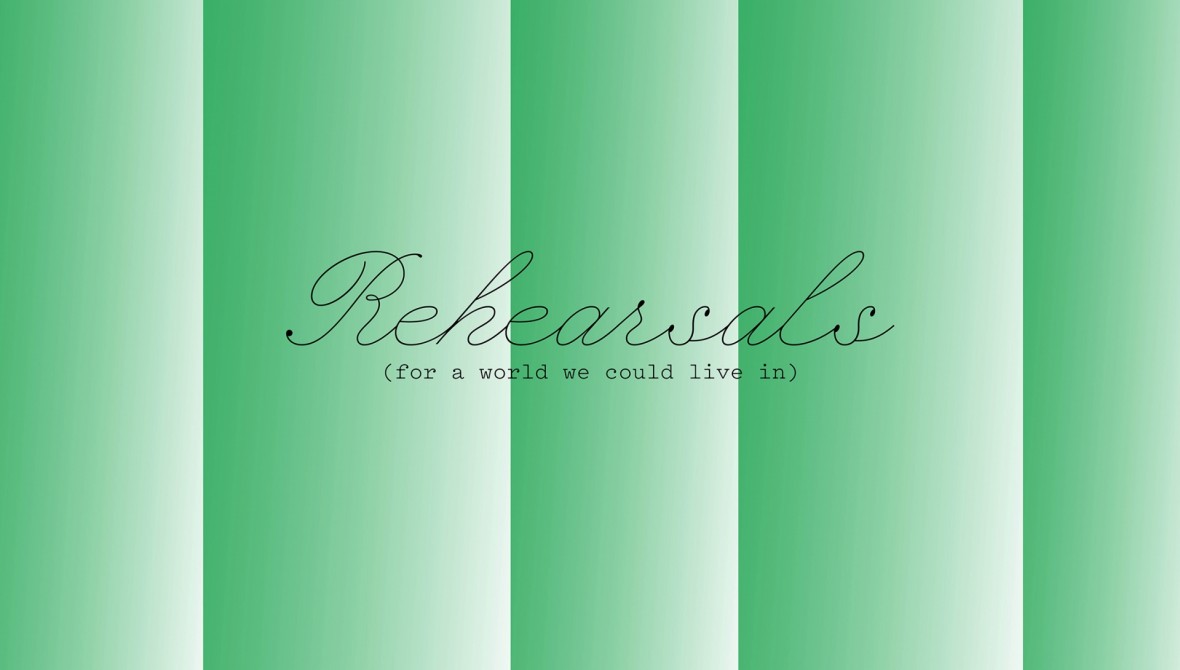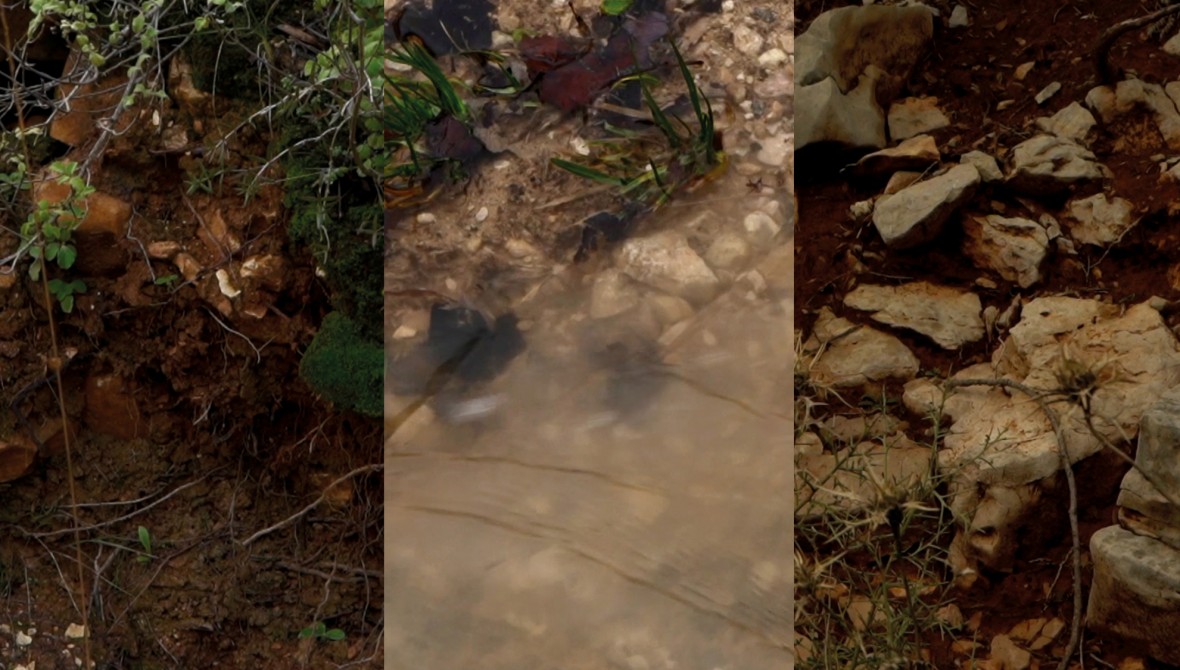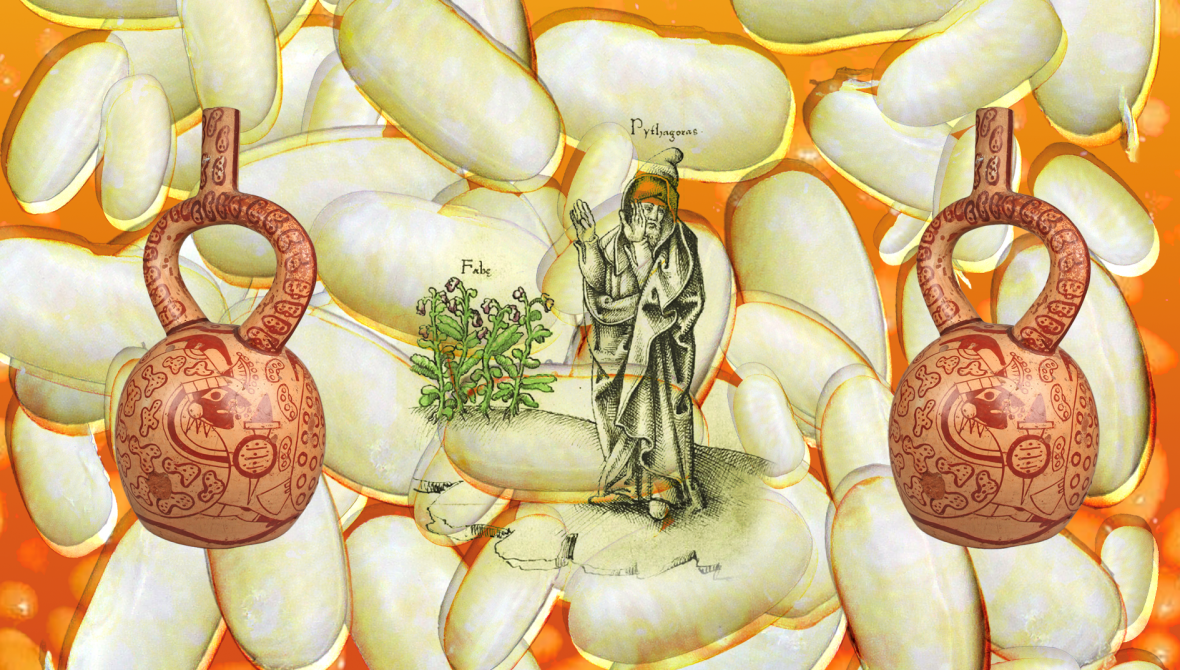Rehearsals (for a world we could live in)
The programme explores practices of world building which enact and perform more just and liveable worlds, alongside the concept of the rehearsal.


(Photo credit: Helene Kazan, “Frame of Accountability”, 1 hour, 2024. Digital film still. Courtesy and copyright of the Artist. )

(Photo credit: Wayfinding with the common bean (Phaseolus vulgaris). Image: Luiza Prado de O. Martins and Dani Admiss.)
Our programme strand, Rehearsals (for a world we could live in) will run from 2024-2026. The programme explores practices of world building, or worlding, which enact and perform more just and liveable worlds, alongside the concept of the rehearsal, both in terms of a slow and committed practice of learning and working-towards, and also in reference to the concept of rehearsal in a Black feminist liberationist lineage: for example how Ruth Wilson Gilmore describes abolition, as life in rehearsal.
The Rehearsals programme is commission a series of artists whose work imagines new worlds or ways of living, from more equitable healthcare systems, to climate solidarity networks, to embodied forms of justice. This programme connects to research happening across Loughborough University, from the Health Humanities research group, to the Institute for Advanced Studies, to researchers in English, Sociology, Politics, Architecture and more.
In addition to the commissions stemming from this programme (below) we also hosted artist Cassie Thornton as a visiting fellow in November 2024. The Rehearsals programme launched with a series of events running from the 4-15 November 2024.
Artist Commissions
Dani Admiss and Luiza Prado - The World is a Mill
The World is a Mill (TWM) is a pilot project bringing together artists and communities collaborating in recipe mapping and food sharing workshops, community cooking, and peer learning. Together with Radar, Admiss and Prado will develop TWM towards a long-term project, initially rooted in the Midlands and expanding to encompass further partnerships.
Worldwide, the climate and nature emergency is creating new states of existential precarity. In response the artists ask, how do we think, feel, and sense our way through extinction, instability and displacement to find new conceptions of solidarity, collectivity and belonging? TWM aims to articulate and experiment with the types of coordination and synergy needed between local, dispersed and displaced communities in climate breakdown. Alternative forms of recipe exchange, food sharing and food as cultural preservation are used to explore how the experimental knowledge and sensorial methodologies of growing and eating can contribute to climate action.
Nat Raha - Liberation Laboratory
Centring transfeminist, queer and abolitionist practices and approaches to mutual aid and collective worldmaking, the liberation laboratory intends to connect people involved in LGBTQI+ mutual aid projects, wider community members, and performance artists. Adopting methods of live research and self-study, through public and closed discussions, knowledge sharing, hangouts and performance practices, the lab will function as a space made for comparing notes on approaches, practical methods and on infrastructures of collective support.
The Liberation Lab will also explore the relationship between queer performance practices and the ‘performance’ of collective worldmaking, by putting the two in dialogue with each other. Raha will link up with a range of activist groups, potentially in a few different cities, in order to foster the conditions of research and study. The work is based on theoretical ideas from Nat Raha and Mijke van der Drift’s book, Trans Femme Futures: Abolitionist Ethics for Transfeminist Worlds (Pluto Press, 2024); and as part of the project, Nat will continue to develop an ongoing, reflective performance work, solidarity & house.
Helene Kazan - Poetic Testimony
For Radar, artist Helene Kazan will conduct a poetic investigation into the modern geopolitics of cotton, grounded in the Midlands’ history of textile production. Kazan will undertake a series of research trips to the region, as well as connect to interdisciplinary practitioners at Loughborough. The project will develop as a time-based audio-visual work sharing the discovery of the poetic investigative process.
Dorine van Meel - Parhankua: fire, community, and ecological justice
Dorine is developing a new film commission through the academic connections made during her research visit to Loughborough in February 2026 as a Fellow of Loughborough University's Institute of Advanced Studies. The film starts from the question of how cultural practitioners can work together toward a liveable world, across the divisions between the Global North and South, and beyond colonial modes of inhabiting the Earth based on extraction and exhaustion.
The film script is being written through a partnership with Felipe Viveros, Marina Flores Cruz, members of the Futuros Indigenas Network, Betel Cucué and the community of Cherani and academics from across Loughborough University departments.
The visual identity for Rehearsals (for a world we could live in) was created by An Endless Supply.
Artists
Events
Rehearsals (for a world we could live in): Programme Launch Event
Tue 5 November - Tue 5 November - 2024
14:00pm - 16:00pm
Panel discussion launching Radar’s new programme strand, Rehearsals (for a world we could live in). Read more
Workshop: The Hologram
Mon 11 November - Mon 11 November - 2024
12:00pm - 15:00pm
Hands-on workshop exploring an artist-led collective healthcare model led by artist Cassie Thornton. Read more
Care in the Ruins
Tue 12 November - Tue 12 November - 2024
14:00pm - 16:00pm
A roundtable discussion focusing on strategies for practicing care amidst the ruins. Read more
A Rebellion Against Despair?
Tue 10 June - Tue 10 June - 2025
12:00pm - 16:00pm
How do we feel about the future our ecological future? Is it time to panic? Could fear motivate us to act? Are there grounds for hope? Read more
Bean Banquet
Thu 7 November - Thu 7 November - 2024
18:00pm - 20:00pm
An invitation-only dinner event as part of Dani Admiss & Luiza Prado's commission The World is a Mill. Read more
Collaboration as Practice
Tue 3 February - Tue 3 February - 2026
12:00pm - 13:00pm
Moving-image artist Dorine van Meel delivers a seminar on her practice for the Institute of Advanced Studies focusing on the collaborative elements of her practice Read more

